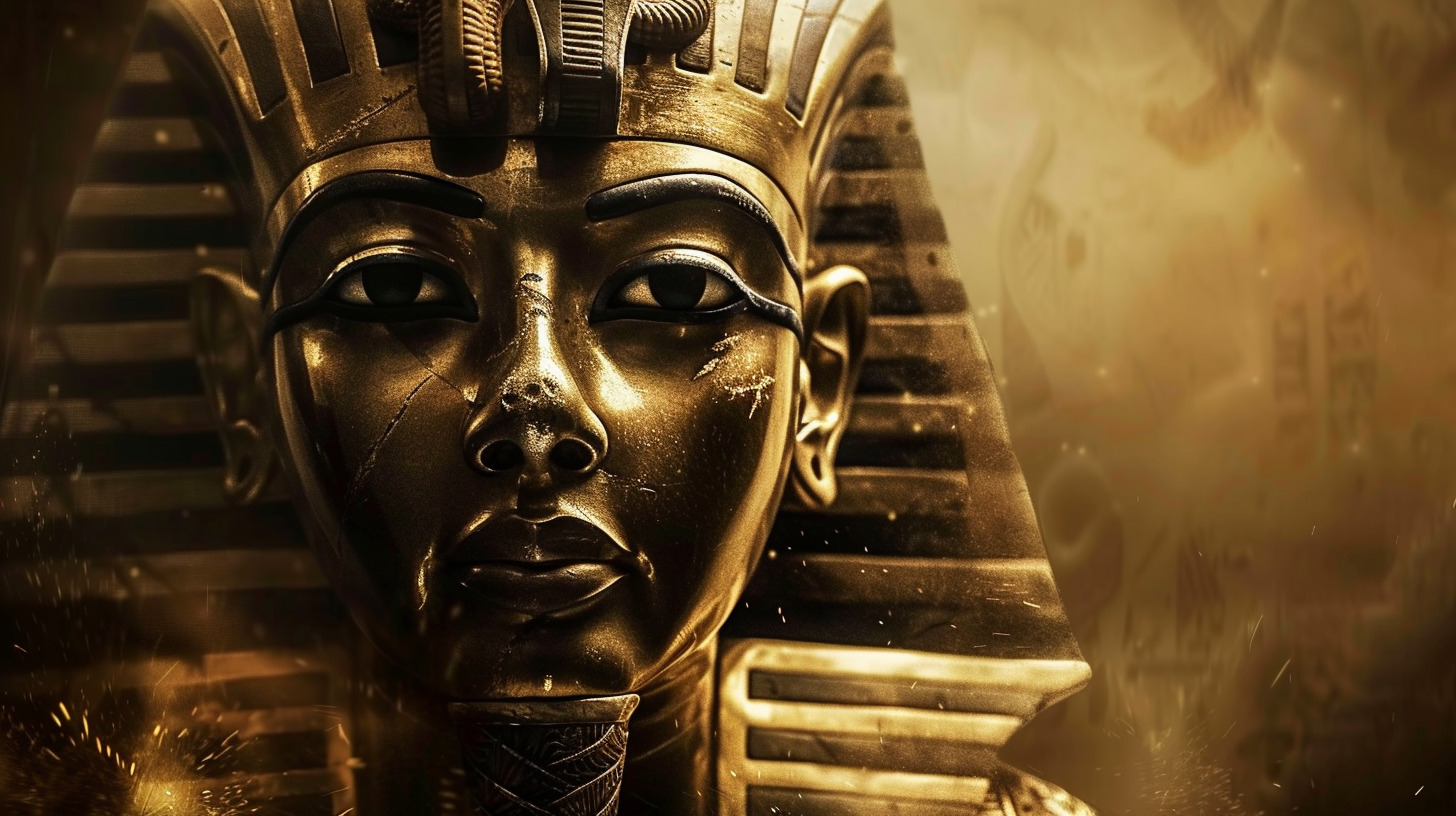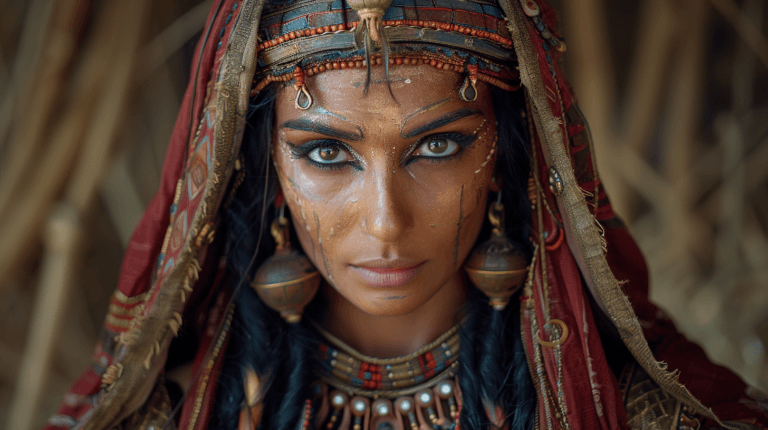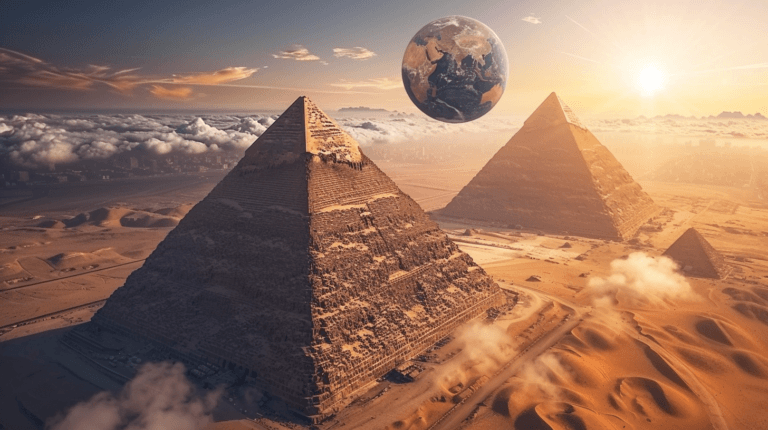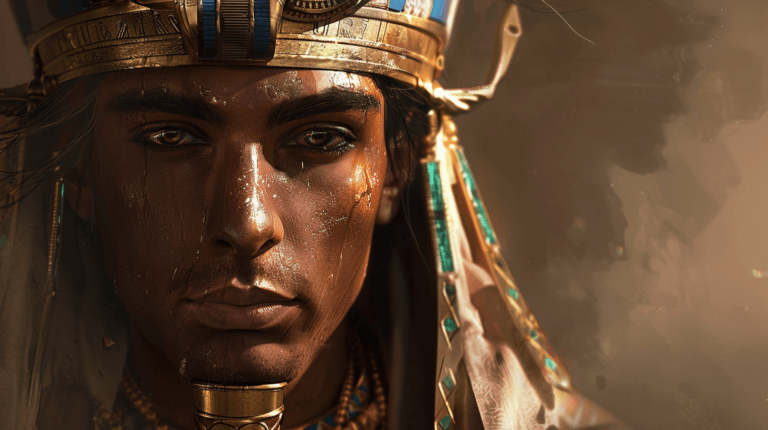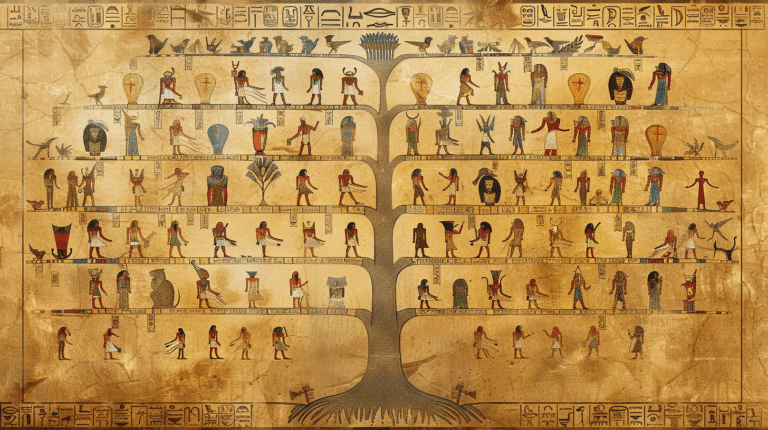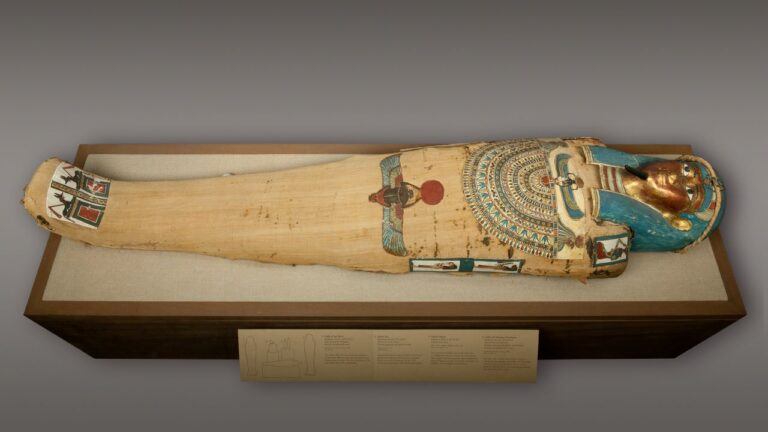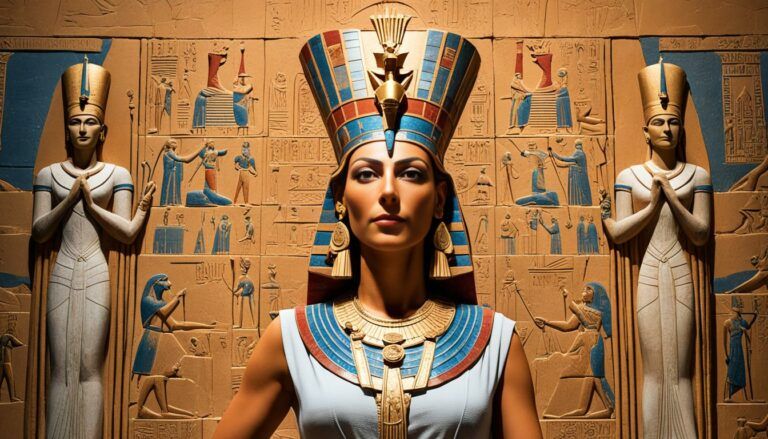What Role Did Pharaohs Play in Ancient Egypt’s Religion?
Pharaohs in Ancient Egypt held a central role not just in governance but also in religion. The pharaohs were considered both the political leaders and the divine intermediaries between the gods and the people. This dual role meant that they were responsible for making sure that religious practices were followed and that the gods remained happy. But exactly what role did pharaohs play in Ancient Egypt’s religion?
In Egyptian society, the pharaoh was not just a king but also the high priest of every temple. This meant that he performed rituals, made offerings, and built temples. Through these actions, the pharaoh was believed to maintain order and harmony in Egyptian culture. The wellbeing of the nation depended on the pharaoh’s ability to communicate with the gods.
By being seen as a living god, the pharaoh’s actions and decisions were intertwined with the divine. This divine kingship reinforced the pharaoh’s power and made his decrees sacred. Egyptian religion was deeply connected to every aspect of life, and the pharaoh was at the heart of it all, ensuring that the gods were pleased and that society remained stable.
Pharaohs as Divine Rulers
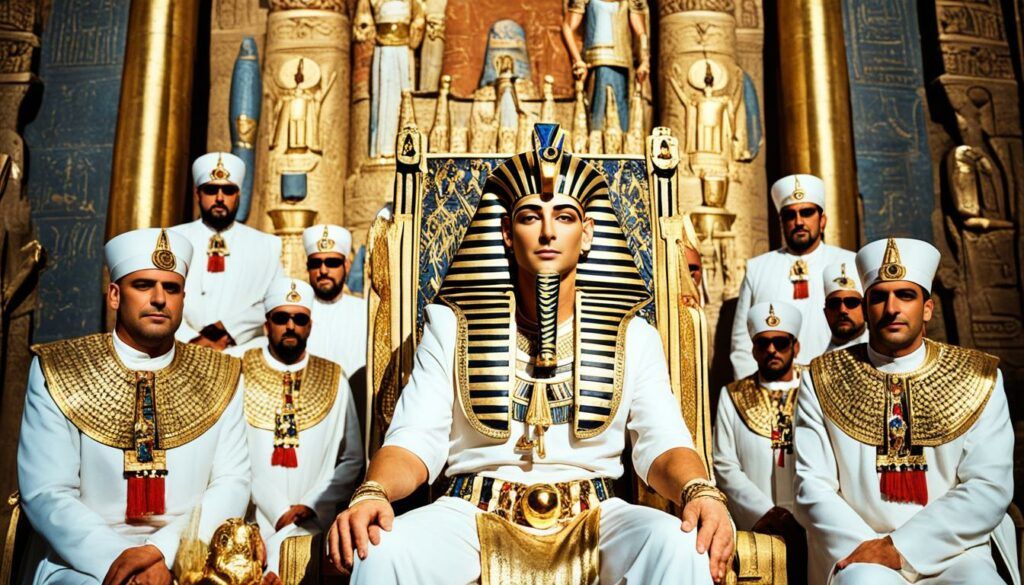
Pharaohs in ancient Egypt were seen as both political leaders and divine figures. They were considered living gods who played crucial roles in maintaining cosmic balance and harmony.
Deification of Pharaohs
The king of Egypt was often seen as a god on earth. This belief was deeply rooted in Egyptian culture. People believed that the pharaoh was the living embodiment of Horus, the sky god, during their reign. After death, a pharaoh was thought to join the pantheon of gods, typically associated with Osiris, the god of the afterlife.
This divine status made the pharaoh an essential intermediary between the gods and the people. The pharaoh ensured that the gods were pleased to maintain ma’at, the principle of balance and order in the universe. Any misstep in divine duties risked bringing chaos to Egypt.
Roles and Responsibilities
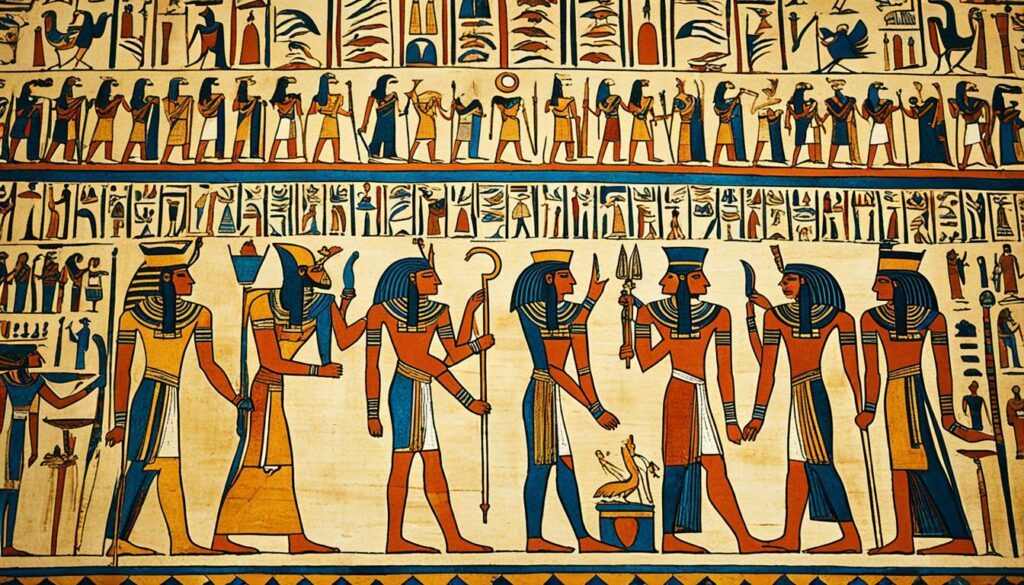
Pharaohs had numerous responsibilities tied to their divine status. They performed rituals and made offerings to the gods to keep ma’at. During festivals and ceremonies, the pharaoh’s participation was crucial for divine favor.
Maintaining the temples where gods were worshipped was another key duty. Pharaohs commissioned grand structures like Karnak and Luxor temples, reflecting their divine role. These temples were sites of ritual activities meant to preserve harmony and order.
In addition to rituals, pharaohs also issued decrees and laws that aligned with ma’at, ensuring societal balance. Their authority extended over economic prosperity, agriculture, and justice. Ensuring the kingdom thrived was seen as a divine mandate, making the pharaoh responsible for the well-being of everyone in Egypt.
Religious Duties and Rituals
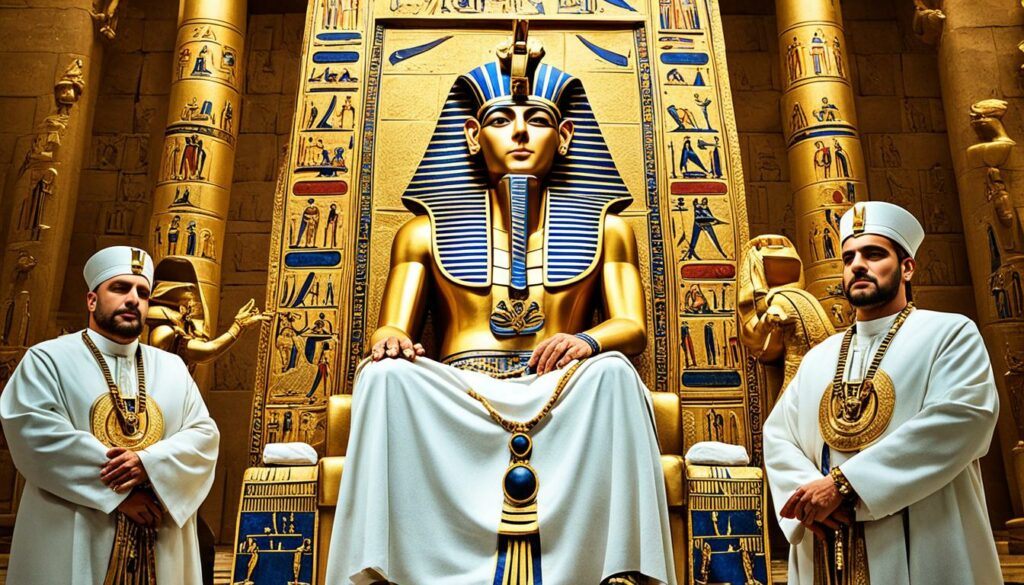
Pharaohs in ancient Egypt had important religious roles that were intrinsically linked to their political power. They ensured the favor of the gods and maintained Ma’at, the concept of cosmic balance and truth.
Ceremonies and Offerings
Pharaohs performed many ceremonies and offerings to appeal to the gods. This included making ritual sacrifices, reciting prayers, and presenting gifts. The high priests and I would often conduct these ceremonies at dawn, calling upon the gods for protection and prosperity. These rituals happened regularly and at key times, such as planting and harvesting seasons.
By engaging in these practices, I demonstrated my connection to the divine. This link was essential for maintaining my authority as a leader. The royal palace was often the site of these offerings, reinforcing its significance in both political and religious life.
Temples and Monuments
I oversaw the construction of grand temples and monuments. These structures were dedicated to the gods and were crucial for religious practices. Temples, like those in Karnak and Luxor, were more than places of worship. They were centers of economic and social activity. High priests and temple staff carried out daily rituals within these sacred spaces.
Monuments, such as obelisks and statues, symbolized my divine role and immortalized my reign. They served as focal points for worship and helped project my power throughout the kingdom. Construction of these edifices required significant resources and labor, emphasizing their importance in ancient Egyptian society.
For more detailed information on my role, you can visit National Geographic or learn about Egyptian religion.
Pharaohs in Egyptian Mythology
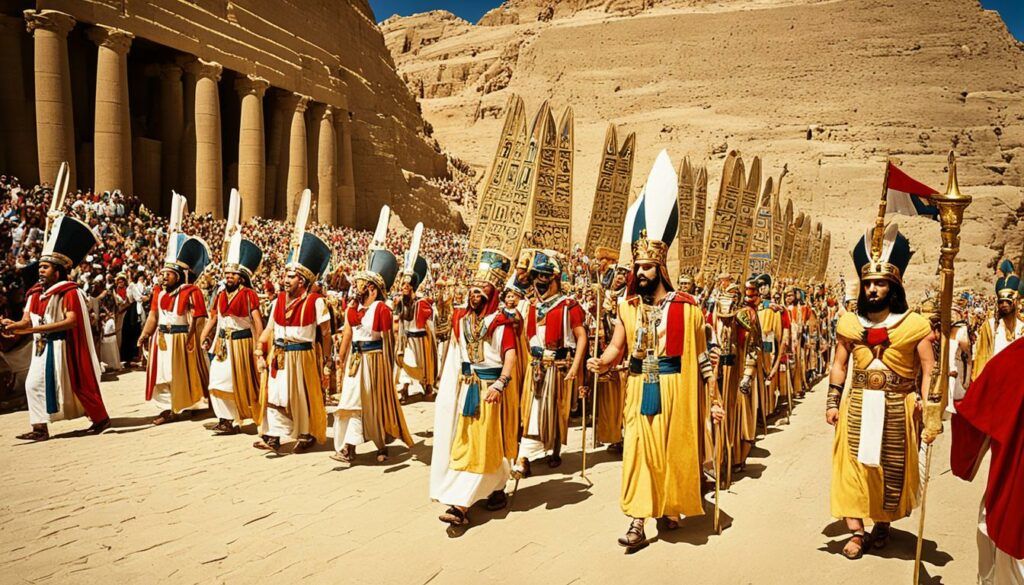
Pharaohs were not just rulers; they were seen as divine figures closely linked to various gods. Their role in mythology reflected their sacred duties and divine right to rule.
Associations with Gods
The pharaoh was often associated with gods like Osiris, Isis, and Horus. In mythology, a pharaoh was considered the living form of Horus, the sky god. Upon death, the pharaoh was linked with Osiris, the god of the afterlife. This ensured a continuous divine rule.
Isis, Osiris’ wife, and mother of Horus, was seen as the protector of the pharaoh. She provided magical support to maintain their reign. Amun and Aten were also significant. The shift in worship from Amun to Aten by Akhenaten marked a major religious change, emphasizing the pharaoh’s evolving role.
Pharaohs were depicted performing rituals to honor the sun god, symbolizing the vital connection between the ruler and divine forces. They performed these duties to maintain ma’at, or cosmic order, crucial for Egypt’s prosperity.
Pharaohs and Society
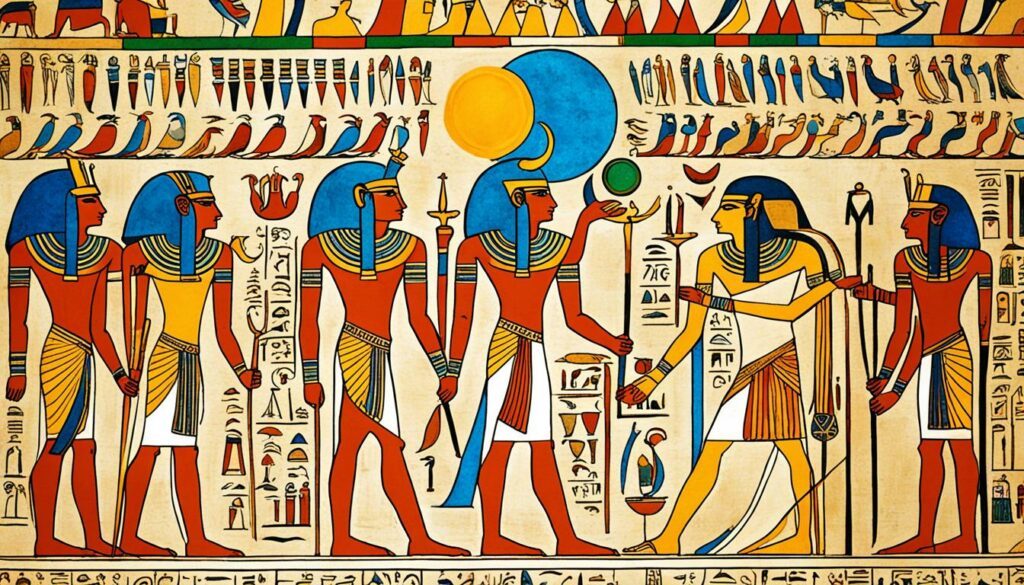
Pharaohs played a crucial role in shaping both the economy and political landscape of ancient Egypt. Their influence extended into many aspects of daily life, impacting everything from agriculture to law enforcement.
Economic and Political Impact
Pharaohs controlled vast amounts of land and natural resources, including fertile areas along the Nile River. These resources formed the backbone of Egypt’s economy, primarily through agriculture. By overseeing the collection of taxes, pharaohs ensured the kingdom’s wealth was effectively managed and utilized.
They acted as supreme judges, maintaining law and order. This legal authority helped establish stability within the society. Additionally, pharaohs were the military leaders, organizing military campaigns to expand and protect the borders of the Egyptian empire.
During periods like the 18th Dynasty, pharaohs signed treaties to ensure peace and stability. Their decisions on treaties and border control directly impacted the empire’s longevity and prosperity. Thus, pharaohs significantly shaped both the economic and political aspects of ancient Egypt.

